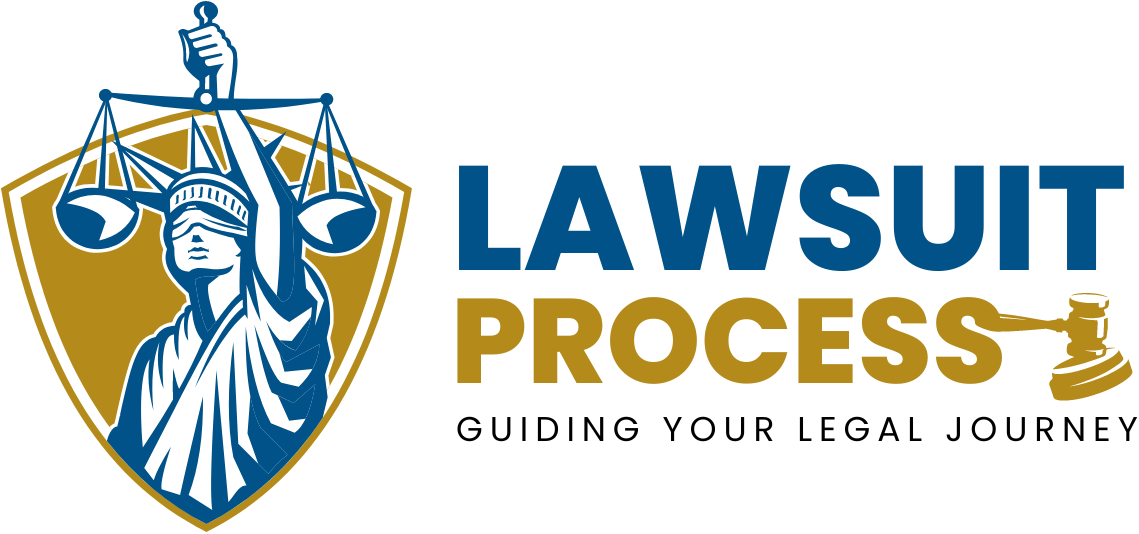Drug offenses are among the most commonly prosecuted crimes in the United States. These offenses range from simple possession of illegal substances to complex trafficking operations that cross international borders. The legal process for drug offenses can be daunting and is known for its complexity due to the involvement of both federal and state laws. This article offers a detailed exploration of the drug offenses lawsuit process in the United States, covering everything from the investigation stage to sentencing.
1. Overview of Drug Offenses
In the U.S., drug-related crimes can be classified under two broad categories: possession and distribution (or trafficking). Possession refers to having a controlled substance for personal use, while trafficking involves the sale, transportation, or distribution of drugs.
Federal and state governments both regulate drug offenses, and the severity of charges depends on several factors including the type of drug, the quantity involved, the jurisdiction, and whether the defendant has prior convictions. Drug crimes may also include conspiracy charges, where a person may be implicated for planning or agreeing to partake in a drug-related offense even if no drugs are exchanged.
2. Investigation and Arrest
The legal process for drug offenses begins with an investigation. Drug-related investigations can be initiated by local law enforcement, state agencies, or federal agencies such as the Drug Enforcement Administration (DEA). During an investigation, authorities may conduct surveillance, use undercover agents, or set up stings to catch individuals suspected of drug crimes.
In some cases, a warrant is issued after law enforcement gathers enough evidence through these investigative methods. Warrants are typically needed to search a person’s home, vehicle, or other private property. The Fourth Amendment to the U.S. Constitution protects individuals from unreasonable searches and seizures, but once law enforcement obtains a warrant, they have the legal right to search and confiscate any evidence related to drug offenses.
3. Arrest and Booking
Once law enforcement officers have enough evidence, they may proceed with an arrest. Upon arrest, the defendant is taken into custody and booked. During the booking process, the arrested individual’s personal information, photographs, and fingerprints are recorded. The arresting officer will also prepare a police report detailing the arrest and evidence seized during the investigation.
4. Arraignment
After booking, the defendant will attend an arraignment, which is their first appearance in court. At this stage, the charges against the defendant are formally presented, and they are given the opportunity to enter a plea: guilty, not guilty, or no contest. In cases involving minor drug possession charges, the defendant may be offered a plea bargain to avoid trial.
If the defendant pleads not guilty, the case moves forward to the pre-trial stage, where both sides—the prosecution and the defense—prepare for trial. In contrast, a guilty plea can lead directly to sentencing or further plea negotiations.
5. Bail and Pre-Trial Release
During or after the arraignment, the judge will decide whether to grant bail. Bail is an amount of money that the defendant pays to ensure their appearance at future court dates. The judge may set conditions for pre-trial release, such as refraining from drug use, avoiding certain individuals, or attending court-ordered programs like drug rehabilitation. In more serious drug trafficking or distribution cases, bail might be denied altogether.
6. Pre-Trial Motions
Once the arraignment is complete, the defense and prosecution file pre-trial motions. These motions often involve requests to exclude certain pieces of evidence, dismiss charges, or request additional time to gather more information. In drug offense cases, one common motion is to suppress evidence that was obtained unlawfully or without a valid warrant, citing a violation of the Fourth Amendment.
The judge will hear these motions and make rulings on whether the evidence in question will be allowed at trial. Pre-trial motions can significantly impact the direction of the lawsuit, and in some cases, if the key evidence is suppressed, the prosecution may dismiss the charges entirely.
7. Plea Bargaining
Plea bargaining is a common part of the drug offense lawsuit process. The prosecution may offer a plea deal, which involves the defendant agreeing to plead guilty in exchange for a lesser charge or a reduced sentence. For example, a person charged with trafficking might plead guilty to possession in exchange for a more lenient sentence.
Plea bargains benefit both sides by avoiding the expense and time associated with a full trial. However, it is important to note that by accepting a plea bargain, the defendant waives their right to a trial, as well as any potential defenses they may have raised in court.
8. Trial
If the case goes to trial, it can be heard by either a judge (bench trial) or a jury (jury trial). In a drug offense trial, the prosecution must prove “beyond a reasonable doubt” that the defendant committed the crime they are accused of. Evidence presented by the prosecution may include drugs seized during the investigation, surveillance footage, witness testimony, and expert opinions.
The defense, on the other hand, will attempt to create reasonable doubt by challenging the validity of the evidence, questioning witnesses, and presenting their own evidence. One defense strategy in drug cases is to argue that the defendant was not aware of the drugs’ presence (for example, if drugs were found in a car the defendant was driving but did not own).
Another common defense is to challenge the legality of the search and seizure that led to the discovery of the drugs. If the defense can show that law enforcement violated the defendant’s constitutional rights, the court may exclude that evidence, weakening the prosecution’s case.
9. Verdict and Sentencing
After both sides have presented their cases, the jury or judge will deliberate and issue a verdict. If the defendant is found not guilty, they are acquitted, and the charges are dismissed. However, if the defendant is found guilty, the case moves to the sentencing phase.
Sentencing in drug offense cases can vary greatly depending on several factors, including the type and quantity of drugs involved, whether the offense was a first-time or repeat offense, and whether the crime was charged under federal or state law. Federal sentencing guidelines are typically harsher than state guidelines for drug crimes.
For drug possession, sentences can range from probation and mandatory rehabilitation programs to lengthy prison terms, particularly for repeat offenders. Trafficking and distribution crimes usually carry more severe sentences, including mandatory minimum sentences in federal cases. Some defendants may also face additional penalties, such as asset forfeiture (the confiscation of property believed to be connected to drug trafficking) or fines.
10. Appeal Process
If the defendant is convicted, they have the right to appeal the court’s decision. An appeal is a legal process where the defendant argues that legal errors were made during the trial that affected the outcome. Common grounds for appeal in drug offense cases include improper jury instructions, errors in admitting evidence, and prosecutorial misconduct.
The appellate court does not re-try the case or re-examine the facts but instead reviews the legal procedures of the trial to determine if the law was applied correctly. If the appellate court finds that an error occurred, it may overturn the conviction, order a new trial, or reduce the sentence.
11. Federal vs. State Prosecutions
Drug offenses can be prosecuted under both federal and state law, and there are significant differences between the two. Federal drug prosecutions typically involve larger-scale drug trafficking operations or crimes that cross state or international borders. Federal agencies like the DEA or the FBI often conduct these investigations.
Federal drug laws tend to carry harsher penalties, including mandatory minimum sentences for certain crimes. Federal defendants also face prosecution in federal court, where sentencing guidelines are more rigid than in state courts.
State prosecutions, on the other hand, often involve smaller-scale drug crimes like possession or distribution within state borders. State laws vary widely, and some states have more lenient drug policies, particularly concerning marijuana. In recent years, several states have decriminalized marijuana possession or have implemented diversion programs for drug offenders, which allow them to avoid jail time by completing rehabilitation programs.
12. Drug Courts and Rehabilitation Programs
In response to the growing opioid crisis and concerns about mass incarceration, many states have implemented specialized drug courts. Drug courts focus on rehabilitation rather than punishment and are designed to help non-violent drug offenders recover from addiction and reintegrate into society.
Offenders who qualify for drug court programs may be required to complete a rigorous rehabilitation program, which includes drug testing, counseling, and regular court appearances. If the offender successfully completes the program, the charges against them may be reduced or dismissed. However, failure to comply with the program’s requirements can result in jail time or other penalties.
Conclusion
The drug offenses lawsuit process in the United States is complex, involving multiple stages from investigation to potential appeals. Both state and federal laws play a significant role in determining how drug offenses are prosecuted and sentenced. While some drug cases may result in plea deals or diversion programs, others lead to lengthy trials and severe penalties.
Individuals facing drug-related charges should seek legal counsel to navigate the intricacies of the criminal justice system and explore all available options for defense. Understanding the rights and legal protections available to defendants is crucial in ensuring a fair trial and minimizing the potential consequences of a drug conviction.










